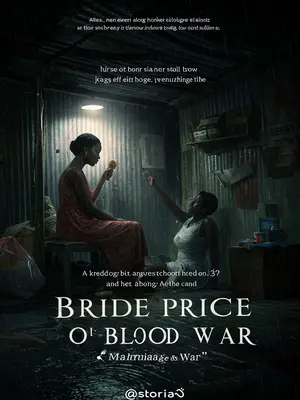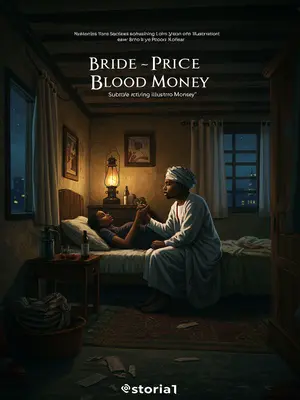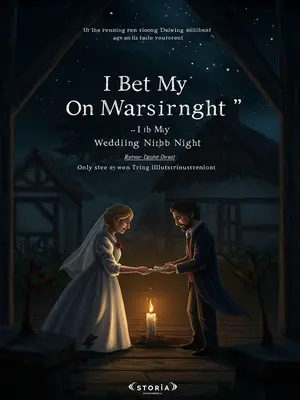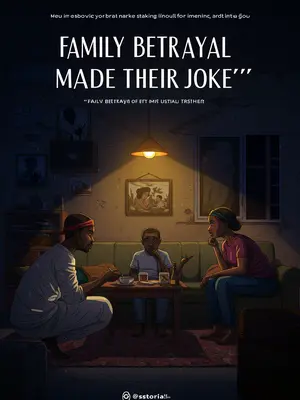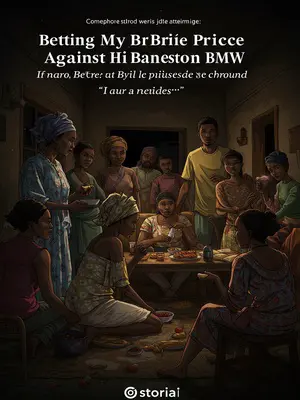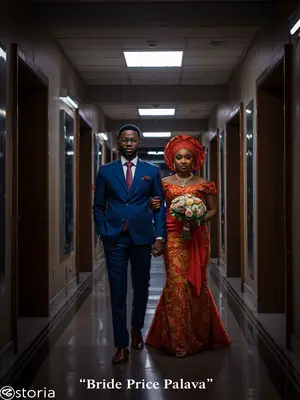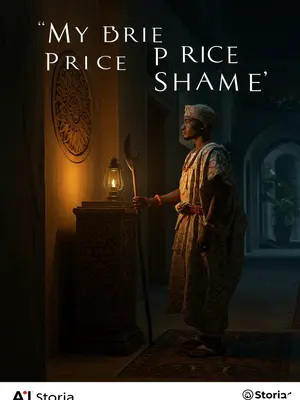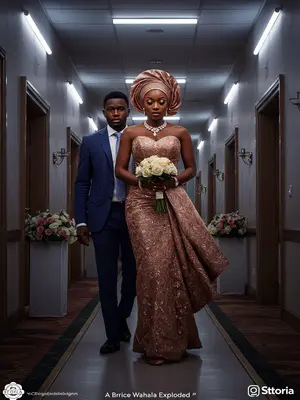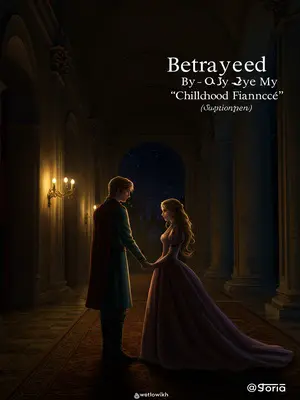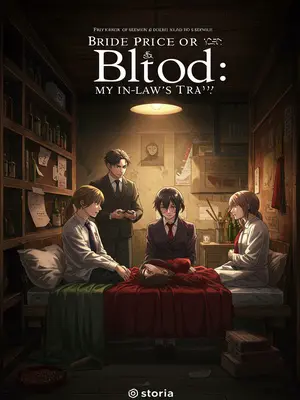Chapter 5: The Pawn’s Escape
My clothes were slowly unfastened, exposing the marks. Musa’s face darkened, emotions flickering in his eyes.
He knelt beside me, his fingers gentle as he unfastened my wrapper. His eyes lingered on the bruises, his jaw clenched tight with anger and regret.
I lay there with my eyes closed, wanting to know what he would do.
I pretended to be asleep, my breathing slow and even. I wanted to see if he would comfort me, if he would finally choose me over madam.
But he didn’t wake me, just gently wiped my body, like I was something fragile and precious.
His hands were soft, careful not to hurt me. He dipped a cloth in warm water and cleaned the marks, whispering apologies I barely heard.
Yet all I felt was bitter irony.
Each gentle touch was a reminder of his betrayal. My heart ached with every stroke.
In the end, he left. In the quiet of the night, I couldn’t hold back my tears.
As soon as the door closed, I let the tears fall—silent, hot, unstoppable. I pressed my face into the pillow, muffling my sobs so no one would hear.
When I first got engaged to Musa, we were basically strangers. He never brought up consummating the marriage, which was a relief.
The other girls teased me about it, but I didn’t mind. I was grateful for the distance, for the peace.
Everybody said Musa was oga Dapo’s right-hand man, but also always in danger—a man destined to die young.
They called him "the shadow in the night," always there when danger struck. Some said he had nine lives; others whispered he was cursed.
At the time, I didn’t care, just quietly swept the compound, waiting for the day I’d become a widow.
I counted the days, marking them on the wall with charcoal. Each day he survived felt like a small miracle.
He didn’t talk much, but always brought me charcoal or cold water when I needed them.
It was his way of showing care—small, thoughtful gestures. I learned to read his silences, to find comfort in his presence.
When I asked, he’d just say, “Na my work.”
He never explained, never complained. Just did what needed to be done.
Everybody envied me, that as a maidservant, I lived almost like a madam. After so long without a child, people began to gossip.
The other women whispered behind my back, their voices full of envy and suspicion. "She dey chop life, but no pikin to show for am. Wetin she dey use?"
Only then did I realize that three years had gone by. He had never died.
The days blurred into years, and Musa was still there—alive, steady, unchanging.
Thinking about spending my whole life like this, I didn’t know how to feel. One day, I just decided to find Musa.
I waited for him by the mango tree, my heart pounding. I needed answers, needed to know if this was all there was.
Looking at his dark mask, I wanted to mention divorce, but when I saw the helplessness in his eyes, I hesitated. “I do something wrong?” he asked.
His voice was soft, uncertain. For the first time, I saw fear in his eyes—the fear of losing me.
I quickly waved my hands. He was good to me, but I didn’t want to hold him back. Without love, I couldn’t give him anything.
I forced a smile, trying to hide my own confusion. "No be you, Musa. Na me."
Maybe he knew what I was thinking. He looked at me seriously and said, “Me, Musa, for this life, na only you. I no go betray you, whether I dey alive or I die.”
His words were a vow, heavy with meaning. I wanted to believe him, but doubt lingered in my heart.
In the end, only his lonely shadow and the unresolved divorce remained.
We parted in silence, the weight of unspoken words hanging between us.
After that day, he became even more caring. In his words: “I must never do well enough, na why my wife wan leave me.”
He brought me gifts, did extra chores, tried to make me laugh. I saw the effort, felt the love, but something was still missing.
So, we grew closer. My heart began to soften. I decided to be honest—if I liked him, I liked him. Why pretend?
I let my guard down, let myself hope for happiness.
We confessed our feelings.
It was awkward at first, both of us stumbling over our words. But in the end, we found our way.
He said that after returning from Christ Redeemer Church in Aba, we would consummate our marriage.
He spoke of the pilgrimage with reverence, as if it would cleanse us both. I agreed, trusting him completely.
I always knew that trip to Christ Redeemer Church was for madam to pray for a child, but I never expected I’d be used as a pawn.
The truth hit me like cold water. I was just another piece on madam’s chessboard.
In the end, the maid who became a surrogate was cut open for the child, and after a cold war, the couple made up.
The story was told in whispers, the details too gruesome to share. The maid was forgotten, her sacrifice buried beneath the family’s happiness.
But nobody knew that under that so-called happy ending, it was a woman’s blood that paid the price.
I thought of all the women like me—used, discarded, forgotten. Our stories were never told.
Now, that fate had fallen on me—brought by the man I loved.
The irony was almost too much to bear. My love had become my undoing.
No wonder he didn’t want to remove his mask, and his voice sounded just like Dapo’s.
The pieces clicked into place. Musa and Dapo—two sides of the same coin, both hiding behind masks.
He thought he could get away with it, not knowing I’d met oga and could tell their scents apart.
In the end, it was the smallest things—the smell of his skin, the way he touched me—that gave him away.

